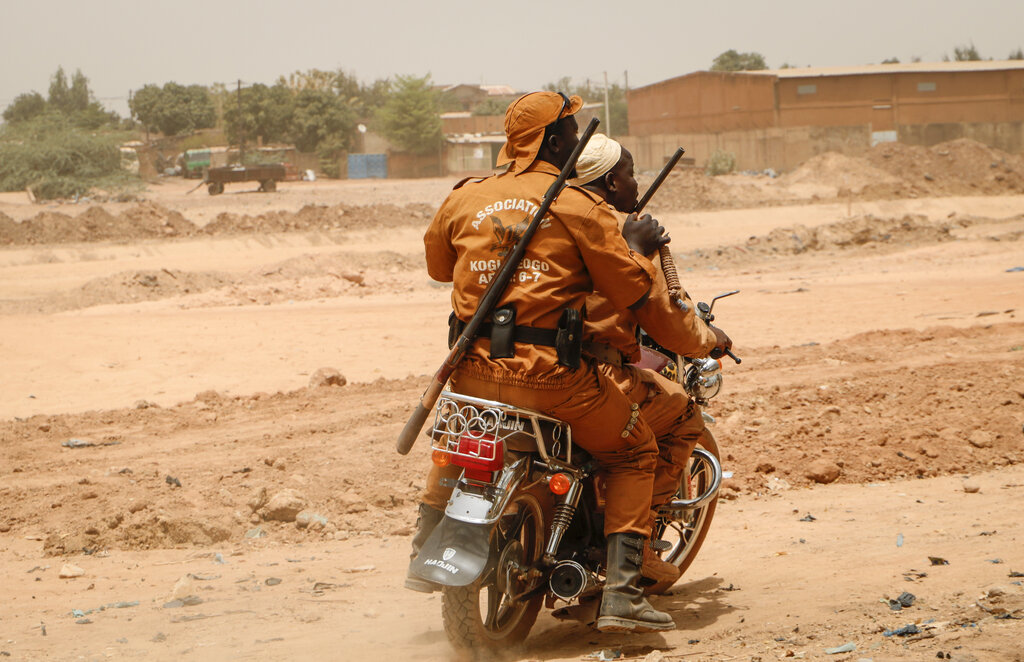ADF STAFF
Three years after Burkina Faso recruited civilian volunteers to join the fight against terrorists in its northern regions, those groups are being blamed for crimes.
The deaths of 30 people in late December in the Nouna community in the western province of Kossi are the latest example of how the groups, known as Volunteers for the Defense of the Fatherland (VDP), have become more aggressive. Critics say they have shifted from simply observing and reporting suspected terrorism to authorities and have begun taking matters into their own hands.
“VDPs have been accused of abuses committed against civilians,” wrote Antonin Tisseron for Friedrich-Ebert-Stiftung Peace and Security. “In the longer term, militias also have the potential to destabilize, fuel crime and weaken state authority.”
Often, VDP attacks are against members of the minority Fulani ethnic group in Burkina Faso which have been blamed for having ties to violent extremists.
The attack in late December was carried out by a VDP group dominated by Dozo, a fraternity of traditional hunters, in response to an attack on their headquarters. It targeted Fulani. After the initial attack, the VDP returned to loot houses and steal livestock, according to the Burkinabé human rights group the Collective Against Impunity and Stigmatization of Communities (CISC).
The CISC has denounced VDP groups for engaging in racial profiling and directing violence at certain ethnic groups without respect for the rule of law. The groups need more training and greater government supervision, according to CISC Secretary-General Dr. Daouda Diallo.
“Within the framework of the actions underway against insecurity, it is imperative to rectify the situation for greater effectiveness,” Diallo said in a statement issued after the December massacre.
The junta now ruling Burkina Faso shows few signs of reining in the VDP groups. In November, the government called for 50,000 new volunteers and got 90,000. Under the program, VDP members receive two weeks of training, which includes lessons in human rights, before receiving an AK-47.
Amid escalating violence in Burkina Faso, VDP groups have become victims as well as perpetrators of violence.
In many cases, poorly trained and lightly armed VDP members are soft targets for terrorist groups. Hundreds have died in ambushes or been killed by roadside improved explosive devices (IEDs) since the VDPs first were created at the end of 2019.
As the attack in Nouna demonstrates, attacks against VDP groups can provoke reprisals that worsen interethnic conflict, according to Burkina Faso’s former Minister of Territorial Administration, Decentralization and Security, Col. Auguste Denise Barry.
In an analysis of his country’s security, Barry said that creating VDP groups could lead to polarization of identities, militarization of communities, and the normalization of violence as a political tool.
Citing the creation of similar groups in neighboring Mali, Barry said they put the country on “a pathway toward an endless cycle of violence and an increase in civilian casualties.”
In his 2021 report, Tisseron noted that, although VDP groups have the potential to strengthen Burkina Faso’s security, they are a “doubled-edged sword.” He urged increased oversight, accountability and eventual disarmament.
“[The government] must reduce the risks associated with the use of armed militias through inclusive recruitment, enhanced training, and penalties for VDPs guilty of abuses, and place improved trust between the state and communities at the heart of its priorities,” Tisseron wrote.

